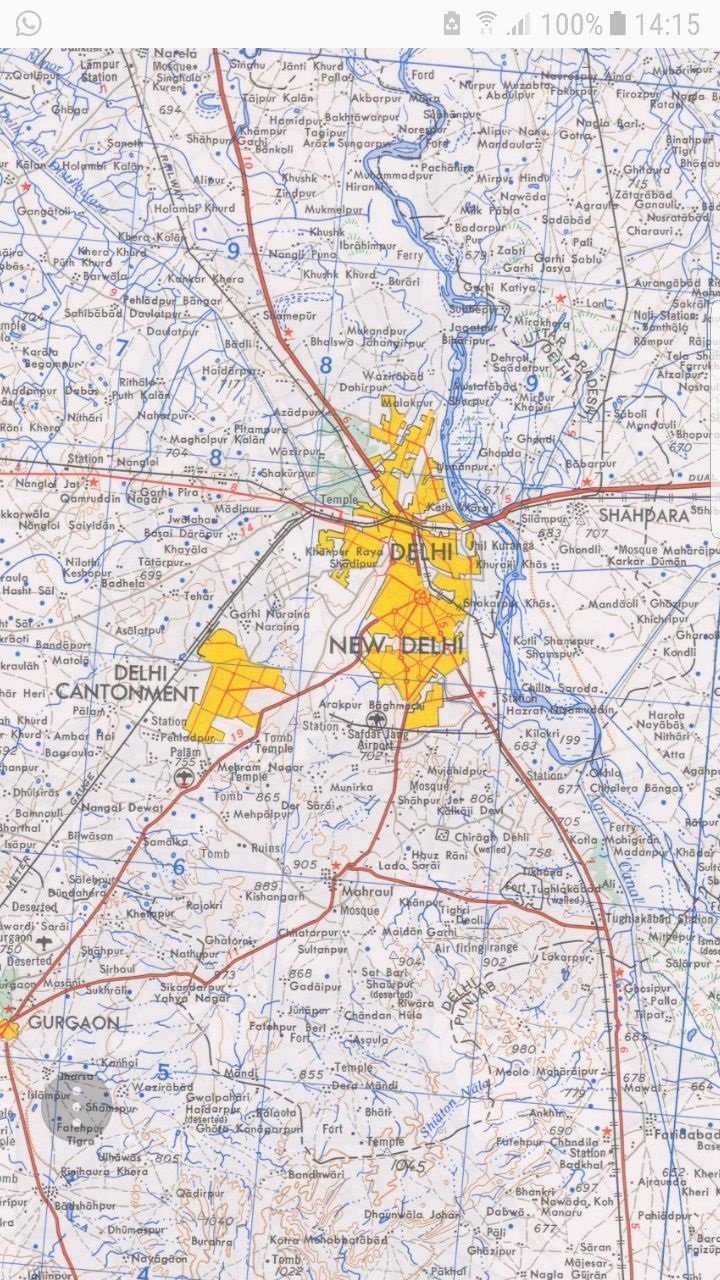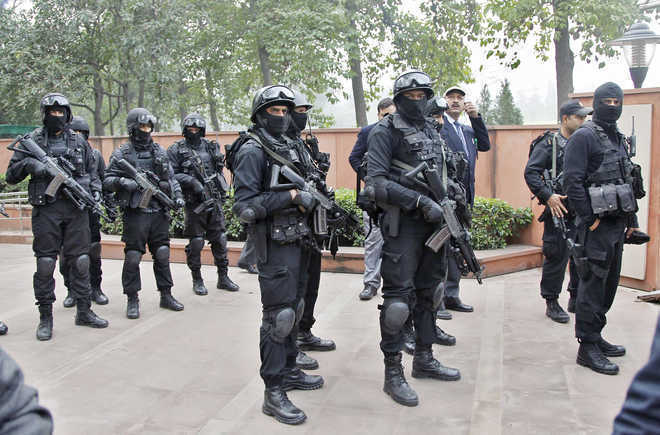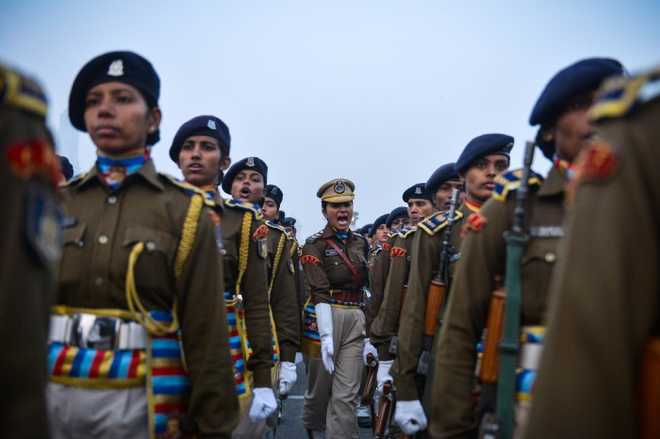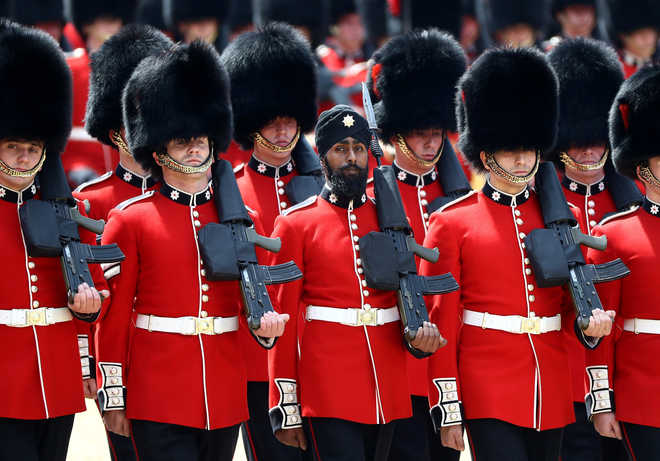In a recent post, I had pointed out the confoundment of serving and retired armed forces personnel, many of whom like me are votaries of this government, at the inexplicable decisions adverse to the welfare and morale of armed forces, taken by successive defence ministers in the past four years. Last in the series of such decisions was the arbitrary order passed by the present Defence Minister for the opening of all cantonment roads to the public.
In view of certain inaccurate and misleading remarks made by the Raksha Mantri (RM) during her recent press conference, here’s an examination of this decision and her defence of it in detail. It’s not clear whether it was the positive reaction by a handful of people benefitted by the opening of these roads, lack of accurate advice, or poor judgement which prompted these remarks. But inaccurate they definitely were. The aim is to present facts in case the minister isn’t already fully aware of them. It is also to ensure that this government, which is doing good work in many other spheres, isn’t ‘penny wise pound foolish’ to trip on such issues.
First of these statements is, “a total of 850 roads were closed in various cantonments, out of which 119 were blocked without following laid down procedures and now some 80 of them have been opened while 24 remain closed and rest of the 15 have been partially opened. Of the 39 roads that remain closed despite the order for their re-opening; 14, the highest, is in Secunderabad.”
The inconsistencies in this are as follows:-
The amended Cantonments Act was passed in 2006, as per the Article 258 of which, the GOC-in-C is the competent authority to sanction closure of roads for security reasons. It further states that public notice will be given inviting objections prior to closing such roads.

This act was passed in 2006, and cantonments have been in existence for much before that, governed by the earlier Cantonment Act of 1924. Section 192 of this act applied to the closing of roads, which did not have any provision for giving public notice or inviting objections. The roads were closed much before 2006, as per prevailing rules, obtaining the sanction of the GOC-in-C. The Act of 2006 does not mention anything about giving public notice/seeking objections with respect to roads already closed at the time of its enactment.

In 2014, eight years after the Act of 2006 was passed, Andhra Pradesh High Court ruled on a collection of writ petitions and PILs against the closure of the 14 roads in Secunderabad cantonment mentioned by the Defence Minister. Dismissing all the petitions, the honourable High Court ruled that these closures were valid and within the powers of the GOC. On the other hand, it took cognisance of the fact that petitioners wanted to use these roads “for convenience or because of their better motorability”, a matter that “required immediate attention of the civilian authorities” who should “take expeditious steps to improve the alternate roads so that ordinary people are not subject to any inconvenience.” It further stated that “the army authorities have imposed restrictions in a phased manner and such decision cannot be held as one made in an arbitrary manner.” Since the Cantonment Act of 2006 is cited in above judgement, it is clear that the ruling did not consider any irregularity vis a vis the same. It’s on the strength of this judgement that the 14 roads remain closed despite orders by MoD.

The above judgement quotes rulings by other courts in similar cases from across the country, including one from Supreme Court, in all of which the closure of roads has been upheld. (full text of judgement here)
After the defeat in court, the residents and their elected representatives did not appeal in Supreme Court as they probably knew it would meet the same fate. Instead of pressurising the civic authorities to provide better alternate routes as per the judgement, they took the easier route of trying to put political pressure on the then Defence Minister Mr Parrikar. There were several rounds of meetings in which the army authorities down to the station commanders were summoned to the Minister’s office and given an opportunity to explain the ground realities. Based on this, Mr Parrikar upheld the army’s decision and even offered handing over defence land to construct alternate route as directed by the court.
Instead of using his influence to speed up the construction of the alternate route, the local MP built an alliance of interest with local representatives of areas adjoining the 62 cantonments. This group seems to have started the whole discussion de novo once Ms Sitharaman was appointed the Defence Minister. It’s not clear whether she was aware of Mr Parrikar’s decision and whether she consulted him on the matter before arriving at a decision to go against it, not only in the specific case of Secunderabad, but across all 62 cantonments. Consequently, she ordered the Ministry of Defence to issue the following letter-


Not only do these instructions completely ignore the judgement of 2014 and subsequent deliberations and the decision by Mr Parrrikar, but also subsume the powers of the GOC-in-C to be the final authority for closing any roads as laid down in the Act of 2006. To my mind, this letter is not only in contempt of court (whose order cannot be overruled by a ministry letter), but also implies that the Ministry considers the GOsC-in-C, the senior most rung of field commanders under whom the nation’s army would go to war, incompetent to take prudent decisions on this matter without supervision by it. It is also an insult to the Parliament which vested these powers in the GOC-in-C through the Act of 2006.
Did the Minister consider these aspects before taking the decision and thereafter publicly defending her decision?
The second statement that is inaccurate and misleading is “The order by the ministry of defence addresses traffic related issues. Places where unit lines exist or where families of our servicemen are living, we are cautious about its security”. The Ministry of Defence letter does not distinguish between roads closed to address ‘traffic related issues’ and places which have security implications. On the contrary, the letter calls for an ‘annual review’ of all roads closed. Do they expect the unit lines and family quarters to shift to different locations warranting such annual reviews?
The third misleading statement is “Army Chief General Bipin Rawat and other top brass of the force were consulted before the government decided to allow civilian access to roads in military cantonments across the country”. Misleading, because of the time allocated for such deliberations, as is apparent from the schedule below (Source)

As per this schedule, the issues of road closure was discussed by the Defence Minister with various stakeholders for a total of 485 minutes (8 hours and 5 minutes) between 2nd April and 23rd May before the blanket order dated 28th May was issued. Out of this, the Chief of Army Staff (COAS) or any other army representatives were included for 170 minutes (2 hours and 50 minutes) and time allotted to meet with elected representatives was 2 hours. It’s questionable whether the decision to open 119 roads could be adequately deliberated in this time frame.
The Army brass cannot be completely absolved of blame either, as they seem to have been unable to put across the facts and implications of such a decision convincingly enough. On the contrary, when asked to bow, they kneeled. Although the ministry letter talks only about the opening of roads, without mentioning any restriction on checking vehicles that pass by, the following letter issued by the Army Headquarters did away with any security checking as well.


Delhi Cantt shown Independent below in pre-1965 map

It’s unbelievable that security checks, which are routinely carried out at hotels, malls, airports etc, have been dispensed with for vehicles passing through cantonments. Whether this was because of any instructions in addition to this MoD letter, or due to over-enthusiasm by the army authorities to comply with the order and even go a step further, is unclear.
How much of all this has happened with the full acquiescence of the Defence Minister based on complete knowledge of facts is difficult to say. Whether the inconsistencies in her statements pointed out above are deliberate or due to lack of adequate briefing is hard to guess. But at the end of the day, she’s responsible for this irrational and hasty decision. And heaven forbids if there is a single untoward incident, will she look back and wish she had given more time and thought to the matter?































































































































